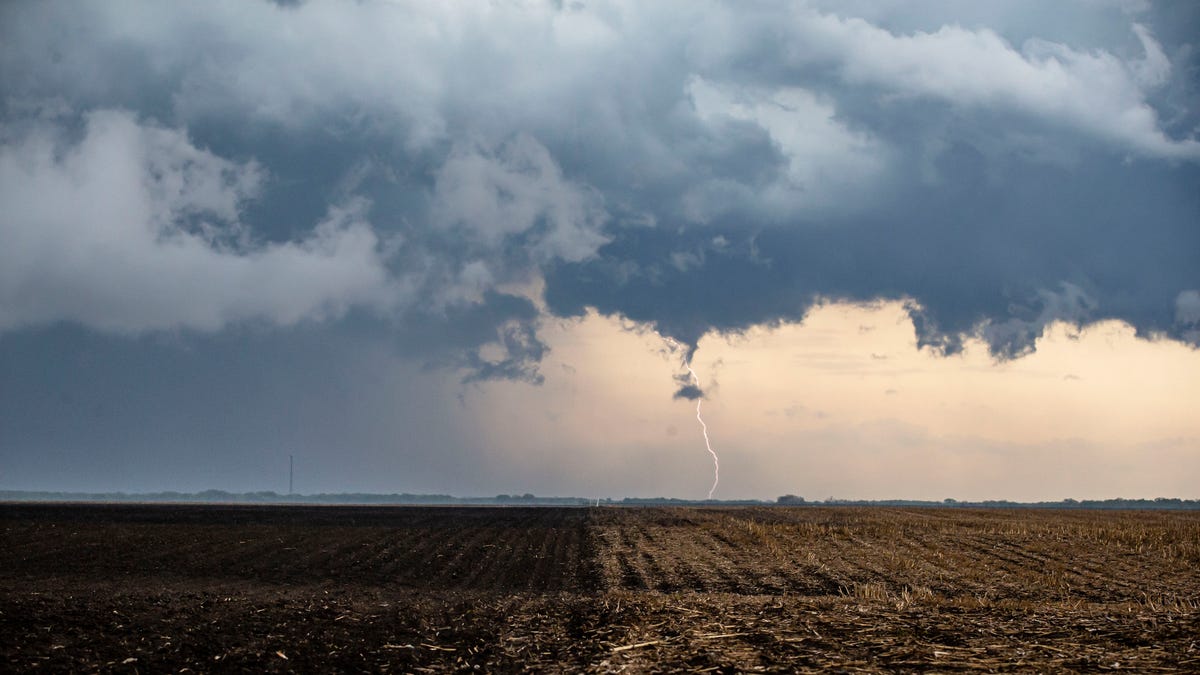Politics
After hostage killings, can the Israel-Hamas cease-fire talks be revived?

In the wake of the deaths of six Israeli hostages, including a California-born U.S. citizen, both the Israeli government and the Palestinian militant group Hamas are signaling hardened postures that pose a wrenching new challenge for the Biden administration.
For weeks, U.S. officials have said they were near a final agreement between Israel and Hamas that would halt fighting in the Gaza Strip, temporarily at least, and allow for the release of hostages from Hamas captivity. At the same time, it would bring freedom for some Palestinians held prisoner by Israel, and allow more aid, desperately needed, to reach Gazans.
But intractable holdups, over who and how many people should be released from each side and over a full withdrawal of Israeli troops from Gaza, prevented a deal — and that was before the latest hostage killings.
Now the U.S. is continuing work on negotiations — but not involving Israeli Prime Minister Benjamin Netanyahu, who President Biden said Monday was not doing enough to secure the hostages’ freedom.
Instead, the president said then, U.S. contacts are with “colleagues from Egypt and Qatar” — the two nations with direct contact with Hamas officials.
“We are working day and night to try to get an agreement over the line,” State Department spokesman Matthew Miller said Tuesday. He would not comment on Netanyahu’s apparent rejection of elements of the deal. “We obviously believe this is an urgent matter.”
The news Tuesday evening that the Justice Department had announced terrorism charges against the leaders of Hamas will probably bring even more uncertainty in talks. The leaders are facing charges, including conspiracy to murder U.S. nationals, in connection with the militant group’s cross-border incursion into Israel Oct. 7 that killed about 1,200 people.
With the war entering its 12th month, Gaza is in the grip of a full-blown humanitarian disaster. At least 41,000 Palestinians have been killed, according to the territory’s health officials, who do not differentiate between civilians and militants. Nearly all of the seaside enclave’s 2.3 million people are displaced, with entire cities bombed into mountains of rubble.
Early negotiating success — a U.S.-brokered accord last November that temporarily halted the fighting in Gaza and freed more than 100 hostages — is now a distant memory. Of the approximately 250 captives taken Oct. 7, Israel believes about 100 hostages remain in Gaza and at least a third are already dead.
The grieving families of the six slain hostages — who Israel says were shot in the head by their captors last week as troops operated nearby — voiced hopes that the violent deaths might prove the impetus for an accord that would free the remaining captives.
Jon Polin, father of Berkeley-born Hersh Goldberg-Polin, said Monday in a eulogy addressed to his 23-year-old son that over the months, the family had “sought the proverbial stone that we could turn over to save you.”
“Maybe, just maybe, your death is the stone” that could help bring the rest of the hostages home, he told the thousands of assembled mourners.
“I really hope that this is a turning point,” said Gil Dickmann, a cousin of Carmel Gat, another of the dead hostages, expressing similar hopes as he spoke to reporters hours before her funeral, also on Monday.
But amid a national spasm of grief, neither Netanyahu nor Hamas gave the slightest public hint that any movement was in the offing.
A big part of the problem, said Mara Rudman, a former special Middle East envoy for the State Department, is that neither Netanyahu nor Hamas chief Yahya Sinwar is motivated to halt the fighting.
“From the get-go, Netanyahu and Sinwar are the two in this equation whose interests do not align with getting to a cease-fire agreement,” she said in an interview.
Her analysis is chilling: Sinwar does not care about Palestinian deaths, since his goal is to stir international opprobrium against Israel and domestic turmoil within, and Netanyahu cares foremost about his political survival and avoiding prison, given criminal cases pending against him, which would be jeopardized if he agreed to a cease-fire deal that his far-right coalition partners object to.
At a Monday evening televised news conference, the Israeli leader signaled intransigence, declaring that Israel’s military control over a narrow strip of territory on the Gaza-Egypt border, known as the Philadelphi Corridor, was non-negotiable.
The nine-mile ribbon of land that Israel took control of in May, Netanyahu said, was “Hamas’ pipeline for oxygen and rearmament.”
“The axis of evil needs the Philadelphi Corridor,” he said. “We need to have it under our control.”
Hamas, for its part, sought to harshly dissuade Israel from any notion that hostages could be freed by military force, such as the Israeli raid that plucked four captives to safety in June from the crowded Nuseirat refugee camp. Palestinian officials said the Israeli raid killed scores of civilians, many of them women and children.
In a posting on the Telegram messaging app on Monday, the head of Hamas’ armed brigades appeared to suggest that an execution protocol had been put in place if Israeli troops were thought to be closing in.
“After the Nuseirat incident, new instructions were issued” to those guarding the captives, said the statement issued in the name of Abu Obeida, a nom de guerre.
Israeli officials interpreted the statement as a threat to kill hostages if Israeli troops were nearby, with the killings of the six as a gruesome illustration of that intent.
Netanyahu is under some of the strongest public pressure in months to strike a deal. Hundreds of thousands of Israelis flooded the streets of communities across Israel on Sunday, after the killings of the six were disclosed, and organizers have called for large demonstrations to continue nightly.
Protesting crowds chant slogans denouncing the prime minister as morally responsible for the hostage killings, and some wave signs depicting him with blood on his hands. But many among Netanyahu’s loyal base of supporters believe his commitment to an unrelenting military campaign is the best way to confront Hamas, ensure Israel’s safety and perhaps ultimately to free the hostages.
Illustrating the split over how to move forward, areas of the country where Netanyahu’s support is high largely declined to take part in a general strike called Monday by the country’s biggest labor federation.
While Netanyahu still has the fealty of most of his Cabinet, including the far-right figures who insist on continuing an all-out war, the country’s security establishment — notably his defense minister, Yoav Gallant — has publicly questioned his negotiating stance, accusing him in essence of searching for excuses to spurn a deal.
The prime minister’s latest show of defiance over the border strip also drew scorching editorial commentary.
“The Philadelphi route will wind up a highway paved with the hostages’ bodies,” analyst Zvi Bar’el wrote in the left-leaning Haaretz daily.
Netanyahu is well aware, though, that many Israelis derive a visceral satisfaction from the military hunting down the perpetrators of heinous acts in southern Israel on Oct. 7.
Almost everyone here remembers the militants’ killing of a father of two named Gil Taasa, in the community of Netiv Haasara, one of many Israeli villages attacked that day. An assailant tossed a grenade into a shelter, killing him as he tried to shield his two young sons.
Widely viewed video showed the aftermath: the two bloodied boys cowering in shock in their living room as the attacker casually took a bottle of cola from the family’s refrigerator.
On Tuesday, the army said the man in the video, identified as Ahmed Fozi Wadia, a Hamas commander, had been killed in an airstrike in Gaza City along with seven other militants.
A military decision on when to carry out such strikes commonly comes only at the last moment even when they are planned well in advance, and normally depends on many factors. But however coincidental, the reported timing struck some as symbolic: Saturday, the day the hostages’ bodies were discovered.
Times staff writers King and Wilkinson reported from Tel Aviv and Washington, respectively.

Politics
Expert reveals how companies are rebranding 'toxic' DEI policies to skirt Trump-era bans: 'New wrapper'

EXCLUSIVE: As the Trump administration and Republicans across the country push to eliminate diversity, equity and inclusion (DEI) policies across the board, the executive director of a top consumer advocacy group spoke to Fox News Digital about what companies and institutions are doing to skirt those efforts.
“Over the last few months, we’ve sort of seen a phase shift in the ways that they’re trying to keep this DEI grift going,” Consumers’ Research Executive Director Will Hild told Fox News Digital about companies, organizations, hospitals and other entities that are attempting to rebrand DEI and environmental, social and governance in the Trump era.
“At first, they just pushed back on, tried to defend DEI itself, but when that became so obvious that what DEI really was was anti-White, anti-Asian, sometimes anti-Jewish discrimination in hiring and promotion, they abandoned that,” Hild said. “Now what they’re trying to do is simply change the terminology that has become so toxic to their brand. So we’re seeing a lot of companies move from having departments of DEI, for example, to ‘departments of belonging’ or ‘departments of inclusivity.’”
Several major companies have publicly distanced themselves from DEI in recent months as the new administration signs executive orders eliminating the practice while making the argument that meritocracy should be the focus.
RED STATE TREASURER REVEALS WHY STATE FINANCIAL OFFICERS HAVE ‘OBLIGATION’ TO COMBAT ESG, DEI
Fox News Digital spoke to Consumers’ Research Executive Director Will Hild about the state of DEI in the U.S. (Getty)
However, FOX Business exclusively reported in April on Consumers’ Research warning that some businesses appear to be rebranding the same efforts rather than eliminating them.
“It is the exact same toxic nonsense under a new wrapper, and they’re just hoping to extend the grift because a lot of these people, I would say most of the people working in DEI are useless,” Hild told Fox News Digital.
KEY BIDEN AGENCY DROPPED $60K ON OVERSEAS CONFERENCE WITH DEI WORKSHOP: ‘SHOULD NEVER HAPPEN’

DEI = Diversity, equity & inclusion. (Dzmitry Dzemidovich)
“They are mediocrities who have managed to get very high-level positions that they’re not qualified for by running this DEI grift, and they’re desperate,” he continued. “They can’t just move into running logistics for Amazon because that takes actual competence and intelligence and if you’re in a DEI department, you probably don’t have either of those things. So they are desperate to keep this grift going so they can justify their own existence. So they’re changing it into a new wrapper.”
Hild, who spoke to Fox News Digital at the State Financial Officers Foundation conference in Orlando, Florida, also explained some of the other issues Consumers’ Research is focused on going forward, including fighting “woke” hospitals in three different areas.

Will Hild, executive director of Consumers’ Research, in Bethesda, Maryland, on Wednesday, May 31, 2023. (Getty Images)
“One is net zero pledges and activities that raise costs for consumers, patients having to pay more because these hospitals are investing millions, sometimes tens of millions of dollars, into green boondoggle projects that have nothing to do with the treatment of patients and the improvement of their health, but they do raise prices,” Hild said.
Secondly, Hild said that his group is concerned about DEI quotas at hospitals.
Hild explained that the third and “worst” issue is transgender surgeries and procedures being forced onto children.
“Pushing of radical left transgender ideology onto kids, and not just pushing it ideologically and rhetorically, but pushing it physically, and what I mean by that is the injection of damaging, lifelong damaging hormones into children to, quote, unquote, change their sex, which is impossible, and even worse, the actual surgical application, removal and mutilation of their genitals, which is a grotesque violation of the Hippocratic Oath,” Hild said.
Consumers’ Research has been actively involved in launching advertising campaigns against hospitals across the United States, including a recent campaign against Henry Ford Health in Michigan, calling out what it says are situations where hospitals are putting “politics over patients.”
Politics
Contributor: Ending birthright citizenship will mostly affect U.S. citizens

The Trump administration’s executive order to limit birthright citizenship is a serious challenge to the 14th Amendment, which enshrined a radical principle of our democratic experiment: that anyone born here is an American. But the order will most affect average Americans — whose own citizenship, until this point, has been presumed and assured — rather than the intended target, illegal immigrants. The irony is hiding in plain sight.
Contrary to conventional wisdom, birthright citizenship is not entirely settled U.S. law. The executive order states, “the Fourteenth Amendment has never been interpreted to extend citizenship universally to everyone born within the United States” and it is very narrowly drafted to exploit this uncertainty by rejecting citizenship to children born in the United States to parents who are not citizens or legal permanent residents. Federal law and practice has recognized American citizenship to anyone born here since the Supreme Court’s landmark 1898 decision in U.S. vs. Wong Kim Ark. But that case did not specifically protect the birthright of children born in the United States to noncitizen, nonresident aliens.
This is a massive blind spot that states are sleep-walking into. They are depending on weak legal precedent, federal code, policy and hair-splitting over the meaning of “subject of the jurisdiction thereto.” In a brief, the states argue that the “understanding of birthright citizenship has permeated executive agency guidance for decades — and no prior administration has deviated from it.” But that won’t matter to this Supreme Court, which has demonstrated a certain glee in dismantling precedent. There is a clear risk that the justices could fundamentally restrict the definition of birthright citizenship and overturn the 1898 ruling.
The executive order directs the federal government not to issue or accept documents recognizing U.S. citizenship for children born to parents unlawfully present here — but also to parents who are here legally but temporarily. This second group is a potentially vast population (the State Department issued 14.2 million nonimmigrant visas in fiscal year 2024) that includes students, artists, models, executives, investors, laborers, engineers, academics, tourists, temporary protected status groups, ship and plane crews, engineers, asylees, refugees and humanitarian parolees.
A limited change targeting a specific population — nonresident aliens — will have huge effects on those who will least expect it: American citizen parents giving birth to children in the United States. Until this point, a valid, state-issued birth certificate established prima facie evidence of U.S. citizenship to every child born in the country. That would no longer be the case if citizenship depended on verifying certain facts about every U.S.-born child’s parents. With that presumption removed by executive order, citizenship must be adjudicated by a federal official.
I know what that adjudication involves. I was a U.S. consular officer in Latin America, and both of my children were born overseas to married U.S. citizen parents carrying diplomatic passports. But because they did not have the presumption of citizenship conferred by an American birth certificate, we had to go to the U.S. Consulate for adjudication of transmission to demonstrate to the U.S. government that our children were American citizens.
This was document-intensive and time-consuming. Each time, we filled out forms. We photographed the baby in triplicate. We swore an oath before the consular officer. We brandished our passports. We presented the baby to the consular officer. We surrendered the local birth certificate. We demonstrated our hospital stay. Only then did we receive a Consular Report of Birth Abroad and only with that report could we apply for U.S. passports for our children. Without the report or a passport, our children could neither leave the country of their birth nor enter the United States.
That is an evidentiary and bureaucratic burden that all natural-born American citizens have until now not had to bear. The Trump administration’s change, if allowed by courts, will require those same parents to prove their own citizenship to the federal government. Good luck, because showing your birth certificate wouldn’t be sufficient in the new regime: The government would require proof not only that you were born in the U.S., but also that at least one of your parents was a U.S. citizen at the time. (Supreme Court Justice Brett Kavanaugh expressed skepticism over this “practical question” during oral arguments last week.)
Americans several generations removed from their immigrant forebears — even those whose ancestors came to North America 10,000 years ago — will suddenly be treated like the unlawfully present parents they thought this rule was designed to exclude.
This rule will lead to chaos, even danger. The federal bureaucracy will have to expand drastically to adjudicate the 3.5 million children born here every year. (For comparison, 1 million people are issued permanent residency status each year and 800,000 become naturalized citizens. This population is typically much better documented than a newborn.) Fearing immigration enforcement, undocumented parents will avoid hospitals for childbirth, dramatically escalating medical risk for mother and baby. Because hospitals also generate birth certificates — as Justice Sonia Sotomayor also noted last week — those babies will form a large, new and entirely avoidable population of stateless children.
It is a truism in some communities that ancestors and family members came to this country legally. But the administration is prepared to dismantle the presumption of citizenship that has been a literal birthright for 125 years. U.S. citizenship is on the brink of becoming a privilege rather than a right, bestowed on those who can afford protracted bureaucratic struggles. Most of the burden will fall on those who least expected it: American parents themselves.
James Thomas Snyder is a former U.S. consular officer and NATO International Staff member.
Insights
L.A. Times Insights delivers AI-generated analysis on Voices content to offer all points of view. Insights does not appear on any news articles.
Viewpoint
Perspectives
The following AI-generated content is powered by Perplexity. The Los Angeles Times editorial staff does not create or edit the content.
Ideas expressed in the piece
- The executive order targeting birthright citizenship undermines the 14th Amendment’s guarantee that anyone born in the U.S. is a citizen, potentially overturning 125 years of legal precedent established by U.S. v. Wong Kim Ark (1898). This creates uncertainty for children born to noncitizen parents, including those lawfully present on temporary visas[3][4].
- Removing the presumption of citizenship for U.S.-born children forces American parents to undergo burdensome bureaucratic processes to prove their own citizenship status, a requirement previously avoided due to automatic birthright recognition. This disproportionately impacts multi-generational citizens who may lack documentation proving their parents’ status[3][5].
- The policy risks creating stateless children, as undocumented parents might avoid hospitals to evade scrutiny, leading to unregistered births and heightened medical dangers. Hospitals, which issue birth certificates, could see reduced attendance, exacerbating public health risks[4][5].
- Federal agencies would face chaos adjudicating citizenship for 3.5 million annual births, a logistical challenge far exceeding current capacities for naturalization or permanent residency processes. This could delay critical documents like passports and Social Security cards[4][5].
Different views on the topic
- The Trump administration argues the 14th Amendment’s phrase “subject to the jurisdiction thereof” excludes children of noncitizens, particularly those unlawfully present or on temporary visas, claiming this narrow interpretation aligns with constitutional intent[1][2].
- Supporters contend the order preserves citizenship’s value by closing perceived loopholes, ensuring it is reserved for those with permanent ties to the U.S. rather than temporary visitors or undocumented individuals[1][2].
- Legal briefs from the administration emphasize that prior agencies’ broad interpretations of birthright citizenship lack explicit constitutional or judicial endorsement, framing the order as correcting longstanding executive overreach[3][5].
- Proponents dismiss concerns about statelessness, asserting that children born to temporary visitors would inherit their parents’ nationality, though this fails to address cases where foreign nations restrict citizenship by descent[2][5].
Politics
The Supreme Court Order

(ORDER LIST:
605 U.S.)
24A1059
MONDAY, MAY 19, 2025
ORDER IN PENDING CASE
NOEM, SEC., DHS, ET AL. V. NAT. TPS ALLIANCE, ET AL.
The application for stay presented to Justice Kagan and by her referred to the Court is granted. The March 31, 2025 order entered by the United States District Court for the Northern District of California, case No. 3:25-cv-1766, is stayed pending the disposition of the appeal in the United States Court of Appeals for the Ninth Circuit and disposition of a petition for a writ of certiorari, if such a writ is timely sought. Should certiorari be denied, this stay shall terminate automatically. In the event certiorari is granted, the stay shall terminate upon the sending down of the judgment of this Court.
This order is without prejudice to any challenge to
Secretary Noem’s February 3, 2025 vacatur notice insofar as it purports to invalidate EADS, Forms I-797, Notices of Action, and Forms I-94 issued with October 2, 2026 expiration dates.
8 U. S. C. §1254a(d) (3).
Justice Jackson would deny the application.
See
-

 Austin, TX1 week ago
Austin, TX1 week agoBest Austin Salads – 15 Food Places For Good Greens!
-

 Technology1 week ago
Technology1 week agoMexico is suing Google over how it’s labeling the Gulf of Mexico
-

 Politics1 week ago
Politics1 week agoDHS says Massachusetts city council member 'incited chaos' as ICE arrested 'violent criminal alien'
-

 Politics1 week ago
Politics1 week agoPresident Trump takes on 'Big Pharma' by signing executive order to lower drug prices
-

 Education1 week ago
Education1 week agoA Professor’s Final Gift to Her Students: Her Life Savings
-

 Education1 week ago
Education1 week agoVideo: Tufts Student Speaks Publicly After Release From Immigration Detention
-

 News6 days ago
News6 days agoAs Harvard Battles Trump, Its President Will Take a 25% Pay Cut
-

 News1 week ago
News1 week agoWhy Trump Suddenly Declared Victory Over the Houthi Militia












